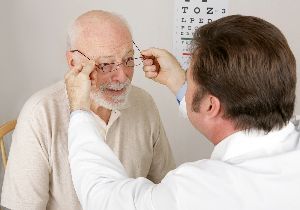
Cataracts are one of the leading causes of blindness around the world. They're characterized by a clouding of the lenses caused by the aging process of the eyes. If an eye doctor has diagnosed you with this condition, it's natural to have some questions. Here are the answers to the most common ones.
A Guide to Cataracts
Who is at risk of developing cataracts?
People between the ages of 45 to 65 are at the greatest risk of developing cataracts. Diabetics have a higher risk than others, as do those who are genetically predisposed or taking certain medications, such as steroids.
In 2010, over 24 million Americans had experienced cataracts. This number is expected to double by 2050.
What are the signs and symptoms?
Cloudy or fuzzy vision is the most common and pervasive symptom that a cataract has developed in one or both eyes. You might also experience changes in how you see color.
Problems with glare, difficulty driving at night, and double vision are common as well. People with cataracts also find themselves frequently needing to change their eyeglasses prescriptions.
How can they be treated?

While the symptoms can be improved by making lifestyle changes, surgery is the only way to remove a cataract. Depending on the patient's needs, an eye doctor will use laser surgery, phacoemulsification, or extracapsular extraction to remove the cataract.
In some cases, an artificial lens will be placed on the eye after the removal. This procedure is commonly well-tolerated with few side effects. With a high success rate, most patients enjoy a restored quality of vision following surgery.
Can they return?
In most cases, a cataract won't return. However, the bag of tissue that supports the artificial lens can become cloudy and affect vision months or years after the original procedure. The doctor would then need to perform a different but similar procedure to correct the problem.
Will I need to wear glasses after surgery?
In the large majority of cases, vision will be significantly improved following surgery. However, this doesn't necessarily mean you won't need glasses anymore.
If an intraocular lens (IOL) is placed, you may only need reading glasses. Those who do not receive an IOL might still need contact lenses for long distances and reading glasses for close vision. Many still need corrective lenses due to aging and vision changes during the life of the cataract.
If you feel as though you may need an eye doctor for cataracts, turn to Comprehensive Eye Care in Washington, MO. From routine eye exams to cataract treatment, the skilled ophthalmologists believe in staying up to date with the latest technology for their patients' comfort and convenience. The staff has also been conducting clinical trials for more than 20 years. For more information or to find out about being a part of a trial, visit the website or call (636) 390-3999 today.
About the Business
Have a question? Ask the experts!
Send your question

